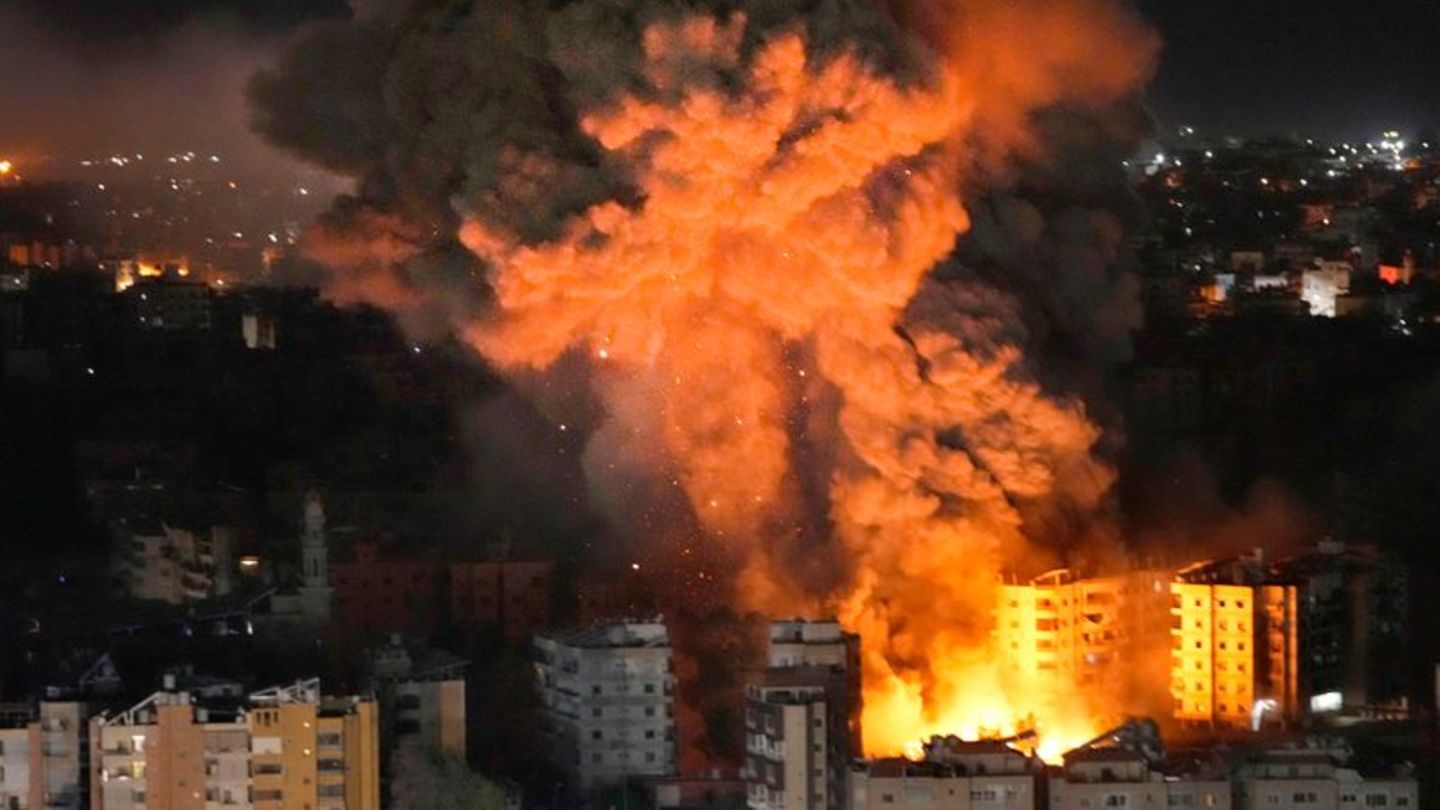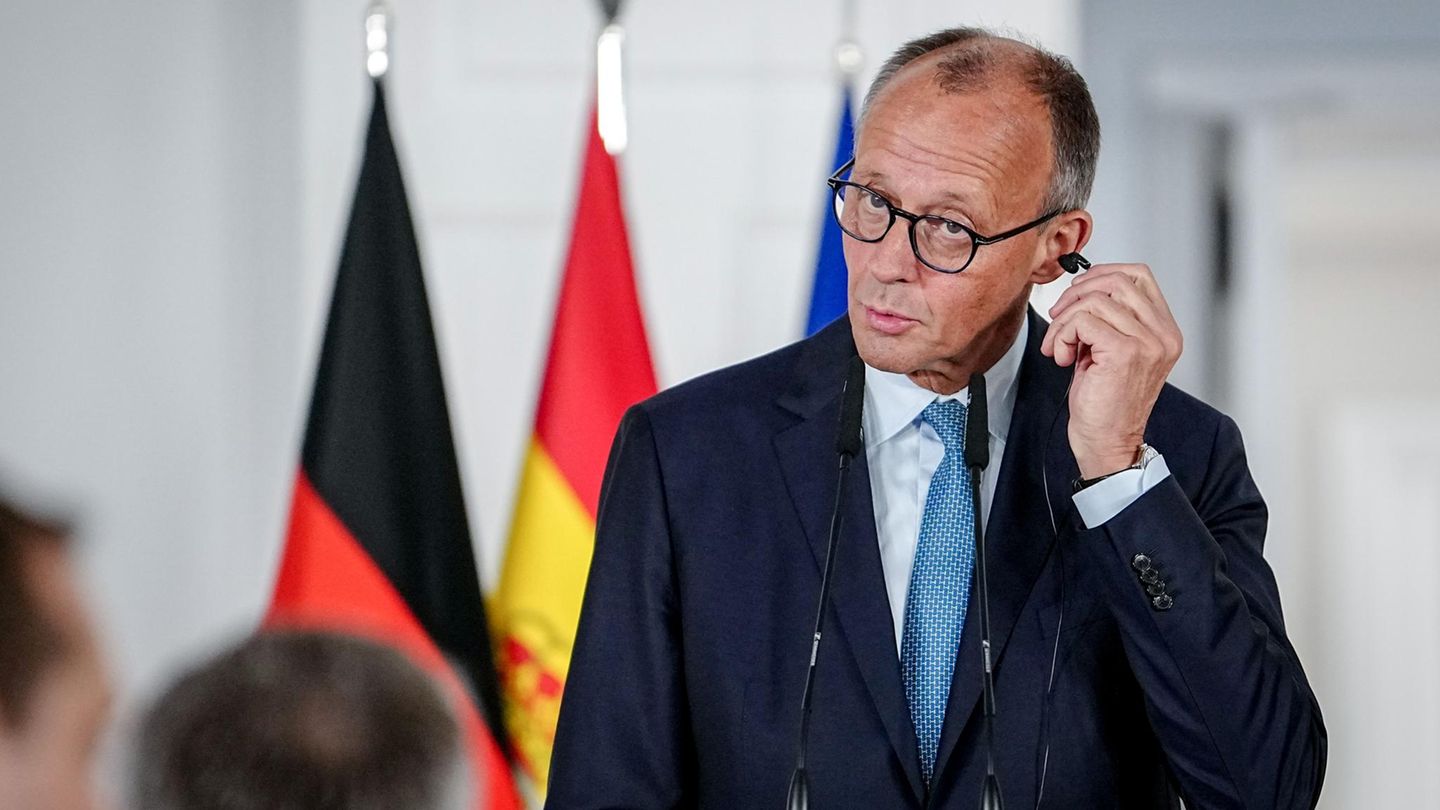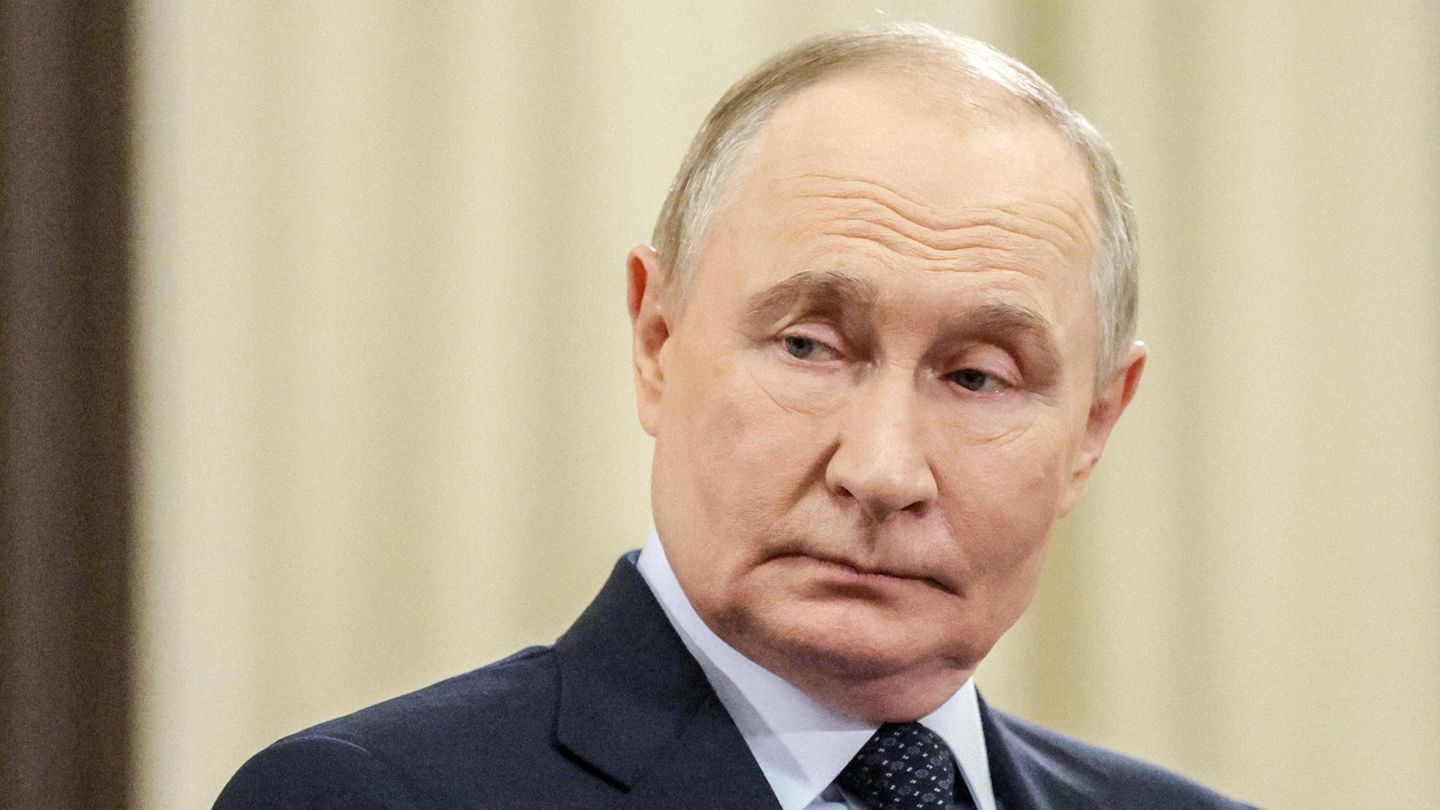Air strikes are again shaking the suburbs of Lebanon’s capital. An aid conference in Paris will be about support for the suffering population. The situation in Gaza is also dramatic.
A few hours before the start of an international aid conference for Lebanon in Paris, the southern suburbs of the capital Beirut were once again shaken by heavy Israeli air strikes. According to the Lebanese Ministry of Health, at least one person was killed; five others were injured, including a child. The Hezbollah militia, in turn, shelled Israel again. The army announced in the evening that around 135 projectiles were fired into northern Israel over the course of the day. There was also an air alarm again in Tel Aviv. Four bullets were registered. Some were intercepted, others were struck in open areas. According to rescue services, one person was injured by rocket debris in the coastal town of Nahariya.
Lebanon Aid Conference in Paris
An aid conference for Lebanon today in Paris will focus on support for the suffering population and the establishment of a functioning state. Germany is providing a further 60 million euros in humanitarian aid to the country, which has been shaken by war and a severe economic crisis. Federal Chancellor Olaf Scholz (SPD) announced this in a telephone conversation with the acting Lebanese Prime Minister Najib Mikati, as government spokesman Steffen Hebestreit announced. Foreign Minister Annalena Baerbock wants to take part in the conference in Paris.
She visited Beirut on Wednesday and warned of far-reaching consequences for the Middle East of the war between Israel and the Iranian-backed Hezbollah militia. Baerbock called for a new diplomatic offensive. It is crucial that an entry into a political process is now found, it was said after the telephone conversation between Scholz and Mikati. The goals should be the security of the people in Israel and the sovereignty of Lebanon. Israel is demanding that Hezbollah withdraw from the country’s border about 30 kilometers beyond the Litani River in accordance with UN Resolution 1701. Israel wants its residents who fled the north of the country to be able to return safely.
US Secretary of State continues Middle East talks
The key to peace lies in the full implementation of the UN resolution, said Baerbock in Beirut. Lebanon’s armed forces also have an important role to play. At the Lebanon conference in Paris today, she wanted to “explore how we can make progress on this difficult path and at the same time help to alleviate the humanitarian suffering.” Lebanon’s partner states, the UN, the European Union and international, regional and civil society organizations are expected to take part in the conference at ministerial level.
Meanwhile, US Secretary of State Antony Blinken is continuing his efforts to de-escalate the Middle East with talks in Qatar. He had previously rejected reports of a possible permanent occupation of the northern Gaza Strip by Israel. The Israeli government is not pursuing any such plans, he said in Tel Aviv. Israeli human rights groups warned last week that there were signs that the military was quietly beginning to implement the so-called “Generals’ Plan,” or Eiland Plan, which would involve the forced relocation of civilians by tightening the siege of the northern Gaza Strip and starving the population provide.
Guterres speaks of Israeli siege in northern Gaza
UN Secretary-General António Guterres complained on Platform “The civilian population must be protected and must be able to receive humanitarian aid. This is required by international humanitarian law,” wrote Guterres. In the case of human rights violations in northern Gaza, a senior former Israeli security advisor advised the soldiers deployed there to disobey orders. Eran Etzion warned in a BBC interview that the Israeli military may be committing war crimes in the northern Gaza Strip.
Meanwhile, there was another exchange of blows between the Israeli army and the Arab TV station Al-Jazeera over its coverage of the Gaza war. The army said it had found documents in the coastal strip indicating that six of the station’s journalists were also members of Hamas or Islamic Jihad. Al Jazeera denied the allegations. They are “fabricated accusations” and an attempt to silence the journalists who remain in Gaza. Israel wanted to hide the war from the world public, it was said.
Again attacks in Lebanon
Meanwhile, according to the United Nations, the humanitarian situation in Lebanon has also worsened dramatically as a result of Israel’s recent attacks. According to Lebanese security circles, Israel’s army almost completely destroyed several places in the south of the country. According to eyewitnesses, residential areas in the suburbs of Beirut are in ruins. In the suburbs, warplanes attacked again at least ten times in the evening hours, as a reporter from the German Press Agency described on site. According to the Lebanese news agency NNA, a residential complex was destroyed in the Lailaki area. The Al-Janah area near the international airport was also hit.
According to the Hezbollah-affiliated television station Al-Majadin, an office of the station south of Beirut was also attacked. Al-Majadin reported this on its website and social media, showing footage of a destroyed floor in a residential building. The information could not initially be independently verified. There were no reports of victims. At the same time, according to Hezbollah, the Israeli army continues to invade southern Lebanon. Israel’s ground troops attempted to advance into Lebanese territory near the town of Aitarun, the militia said. It was said that their fighters forced the soldiers to retreat across the border with machine guns and rockets.
Human rights activists condemn attacks on Hezbollah bank
According to its own statements, Israel’s army also bombed branches of the Al-Kard al-Hassan association, a type of Hezbollah bank, in Lebanon. According to the human rights organization Human Rights Watch (HRW), the attacks are war crimes. “The fact that an armed group uses a financial institution, association or bank does not mean an effective contribution to military action,” HRW said. “Therefore, it is not a legitimate military target under the laws of war,” it said.
The current war began a year ago with Hezbollah’s rocket attacks on Israel – according to its own statements, in support of Hamas, against which Israel has been waging war in the Gaza Strip since the Hamas terrorist attack in Israel on October 7, 2023. Since then, Israel and Hezbollah have been shelling each other in the border area. In September, Israel massively expanded its attacks in Lebanon – from the air and then also on the ground. More than 2,500 people were killed, thousands injured and hundreds of thousands displaced, most of them in Lebanon.
Source: Stern
I have been working in the news industry for over 6 years, first as a reporter and now as an editor. I have covered politics extensively, and my work has appeared in major newspapers and online news outlets around the world. In addition to my writing, I also contribute regularly to 24 Hours World.




